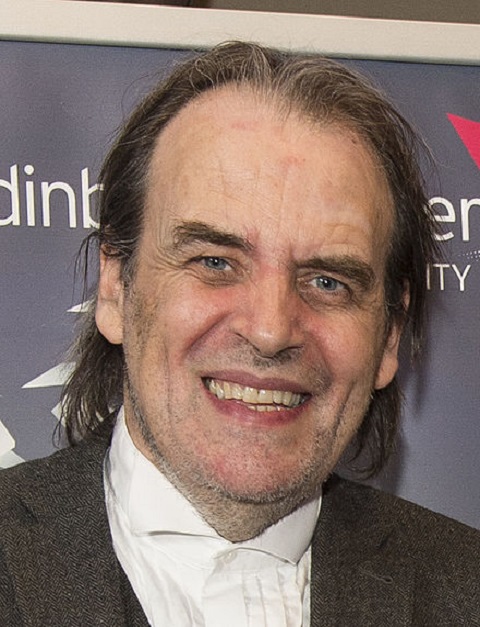
Keynote Speakers

William (Bill) J Buchanan OBE is a Professor in the School of Computing at Edinburgh Napier University, and a Fellow of the BCS and Principal Fellow of the HEA. He was appointed an Officer of the Order of the British Empire (OBE) in the 2017 Birthday Honours for services to cybersecurity. Bill currently leads the Blockpass ID Lab and the Centre for Cybersecurity and Cryptography. He works in the areas of blockchain, cryptography, trust and digital identity. He has one of the most extensive cryptography sites in the World (asecuritysite.com), and is involved in many areas of novel research and teaching. He has published over 30 academic books, and over 350 academic research papers. Along with this, Bill’s work has led to many areas of impact, including three highly successful spin-out companies (Zonefox, Symphonic Software and Cyan Forensics), along with awards for excellence in knowledge transfer, and for teaching. Bill recently received an ”Outstanding Contribution to Knowledge Exchange” award, and was included in the FutureScot “Top 50 Scottish Tech People Who Are Changing The World”.

Navrina Singh
View MoreNavrina Singh is the Founder & CEO at Credo AI, USA, an end-to-end governance platform for managing compliance and measuring risk for your AI deployments at scales. Navrina is also a board member @Mozilla, a Young Global Leader at the World Economic Forum and an Ex-Microsoft & Qualcomm. Whilst her remit is vast, she is laser focused on ethical and responsible AI. You can reach her at www.credo.ai

John Davies
View MoreJohn Davies is the Co-founder & Chair of Cyber Wales, UK the largest cyber security ecosystem in the UK. John has also chaired the Wales Cyber Resilience Board, a Welsh Government Steering Committee working with the National Cyber Security Centre to enhance cyber resilience across Welsh Public Sector organisations and providing policy and best practice advice for the Private Sector. You can reach John at www.cyberwatching.eu
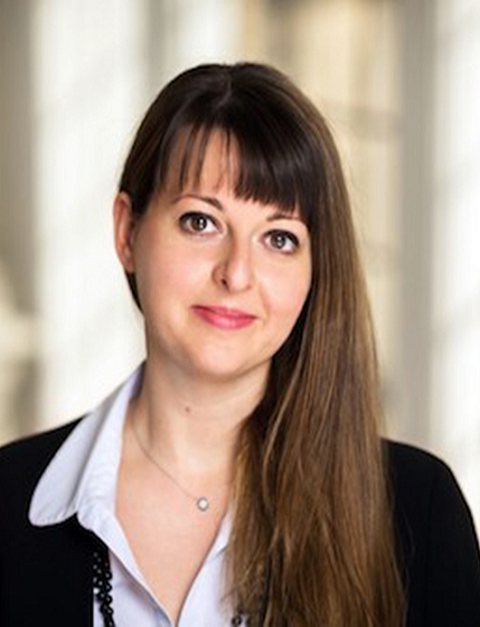
Maria Bada
View MoreMaria Bada is a Lecturer in Psychology at Queen Mary University in London, a visiting lecturer at Royal Holloway, University of London and a RISCS Fellow in cybercrime. Her research focuses on the human aspects of cybercrime and cybersecurity, such as profiling online offenders, studying their psychologies and pathways towards online deviance as well as the ways to combat cybercrime through tools and capacity building. She is a member of the National Risk Assessment (NRA) Behavioural Science Expert Group in the UK, working on the social and psychological impact of cyber-attacks on members of the public. She has a background in cyberpsychology, and she is a member of the British Psychological Society and the National Counselling Society.
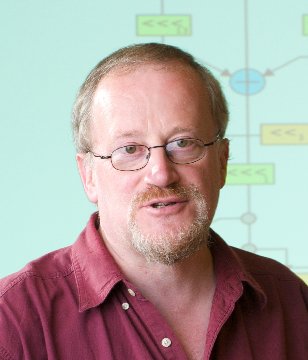
Ross Anderson
View MoreCyber Science 2021
Ross Anderson is Professor of Security Engineering at Cambridge University. He was one of the founders of the discipline of security economics, and leads the Cambridge Cybercrime Centre, which collects and analyses data about online wickedness. He was one of the designers of the international standards for prepayment electricity metering and powerline communications; he was also a pioneer of peer-to-peer systems, hardware tamper-resistance and API security. He is a Fellow of the Royal Society, the Royal Academy of Engineering, and the Institute of Physics, and a winner of the Lovelace Medal – the UK’s top award in computing. He is well known as the author of the textbook “Security Engineering – A Guide to Building Dependable Distributed Systems“.
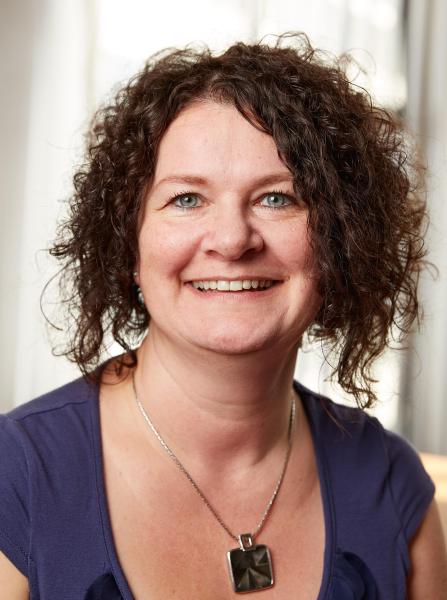
Annabel Latham
View MoreDr Annabel Latham is a Senior Lecturer, Department of Computing and Mathematics at Manchester Metropolitan University, UK. She is a Senior Member of the IEEE, the Chair of the IEEE UK & Ireland Women in Engineering Affinity Group, and also, Chair of the IEEE Computational Intelligence Society Graduate Student Research Grants Committee and a host of other associations.
Annabel is the Unit Leader of Information Systems Strategy (Level 6), her teaching engagements include both undergraduate and postgraduate students, and she has supervised many PhD students.
Annabel is a recipient of the Outstanding Peer Reviewer Award, Elsevier: Computers & Education: Awarded Apr-18 (award dated Dec 2016) for begin in the top 10th percentile of reviewers for Computers and Education journal. She has also taken part in expert reviewing of external funding bodies, including the National Foundation of Science and Technology Development of Vietnam (NAFOSTED), and National Council for Science, Higher Education and Technological Development, Croatia.
Her research expertise is in Artificial Intelligence in Education, particularly learner profiling, natural language tutoring and adaptive systems. She has also worked in the following areas:
- Computational Intelligence
- Conversational Agents
- Intelligent Tutoring Systems
- Agent Intelligence
- Knowledge Engineering
- Intelligent Systems
- Affective Computing
- Semantic Clustering of Social Media Text (Twitter)
- Information Systems Strategy: Strategic Use of Social Media
- Ethics and Trust of Artificial Intelligence in Education
Annabel is widely published and some of her featured publications can be found here https://www.mmu.ac.uk/computing-and-maths/staff/profile/index.php?id=2382
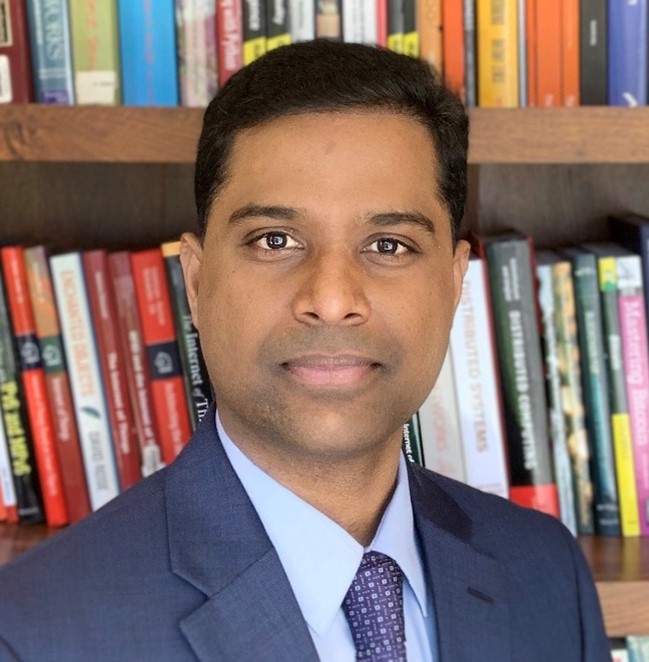
Ramesh Ramadoss
View MoreDr. Ramesh Ramadoss is the Technical Director at the InterWork Alliance. He is a co-chair of the IEEE Blockchain Initiative. He leads the IEEE Blockchain Standards Committee.
He received his Doctor of Philosophy (PhD) degree in Electrical Engineering from the University of Colorado at Boulder, USA in 2003. Between 2003 and 2007, he was employed as an Assistant Professor in the Department of Electrical and Computer Engineering at Auburn University, Alabama, USA.
In 2008, he moved to Silicon Valley and has over a decade of industrial experience in technology companies. He has conducted R&D projects for DARPA, NASA, US Army, US Air Force, Sandia National Labs, and Motorola Labs.
Ramesh is the author or co-author of 1 book, 3 book chapters and 55 research papers (Google Scholar Citations: 900). He has delivered talks at over 90 international conferences in 40 countries.

Donna O'Shea
View MoreDonna O’Shea is Head of Department of Computer Science at Cork Institute of Technology, Funded Investigator at the SFI research centres CONNECT and ENABLE and group lead of Ríomh – Intelligent Secure Systems research group and member of Nimbus Research Centre.
Donna’s research expertise lies in the area of enterprise security (i.e. SDN and NFV security) and network and service management with a specific focus on the design, analysis and optimisation of wired and wireless communication systems, networks and services. During her PhD she made a significant contribution in the area of service provisioning for Beyond 3rd Generation (B3G) networks. On completion of her PhD she spent five years working for IBM and this work exposed her to the rigorous design discipline that is a prerequisite for the successful development of large, complex systems across several sites, multiple design teams and various target platforms. The work in IBM also deepened her technical knowledge in the area of network and service management for mobile and Cloud based services.
Donna has been a central figure in establishing the IDA funded National Cybersecurity Cluster called Cyber Ireland the goal of which is to ensure that Ireland is well positioned both to service the already significant activities in the area of cybersecurity research and innovation and to build excellence and talent that will enable further growth in this expanding field.
Donna is director of IT@Cork a not-for-profit independent business organisation representing the interests of the IT industry in Cork, is chair of the Computing Department’s research studies committee and is a committee member of IEEE UK Ireland Women in Engineering and is an IEEE Senior Member.

Phil Legg
View MoreDr. Phil Legg is an Associate Professor in Cyber Security and Programme Leader for MSc Cyber Security at the University of the West of England (UWE Bristol), UK. His research intersects across Cyber Security, looking at how machine learning, visual analytics, and human-computer interaction are adopted within cyber security, to improve interpretability and understanding of risk, and to improve robustness and trust of modern security technologies. His early research addresses the robustness of machine learning and computer vision systems, as well as how such models can be utilised for insider threat detection and cyber situational awareness. More recently, he is interested in how human-machine teaming can help to establish confidence and trust in human-machine agents, and how active learning techniques can be used to interrogate model robustness and identify security vulnerabilities such as adversarial learning cases. At UWE Bristol, he is an active researcher within the Computer Science Research Centre in the Department of Computer Science and Creative Technologies. He studied at Cardiff University for both his BSc Computer Science and his PhD Computer Science. After completing his PhD in 2010, he went on to post-doctoral research and teaching roles at Swansea University and the University of Oxford, working with a variety of stakeholders in industry and government. He then joined UWE Bristol in 2015. He holds a Postgraduate Certificate in Teaching and Learning for Higher Education (Distinction), and is a Fellow of the Higher Education Academy. He is a professional member of the IEEE and the BCS. He also holds a Security+ professional certification from CompTIA. Further details available at: http://go.uwe.ac.uk/phil
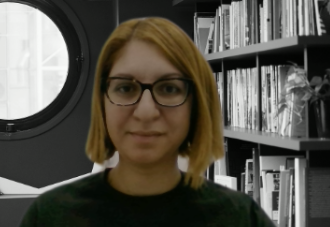
Eliana Stavrou
View MoreDr. Eliana Stavrou is an Assistant Professor and the Course Leader of the MSc Cybersecurity at the University of Central Lancashire Cyprus. She holds a PhD in Cybersecurity (2014), an MSc in Advanced Information Technologies (2006) and a BSc in Computer Science (2003) from the University of Cyprus. She is the founder of the Applied Cybersecurity Research Lab with a focus on contacting applied research on cybersecurity capabilities development, cyber situational awareness, cybersecurity education and training and security in the IoT. She is coordinating and delivering training workshops on specialized cybersecurity topics across primary, secondary, higher and vocational level education. She is also a member of the expert advisory panel at the Global Cybersecurity Capacity Centre at Oxford University (UK) and a mentor at the Doctoral School of the European Security and Defence College (ESDC). She has also been involved in a number of national and European telecommunication and security related R&D projects (e.g. 2BeConnected, IDEALVis, SKINIKO, DITIS, e-Minder, PKI pilot, etc.).
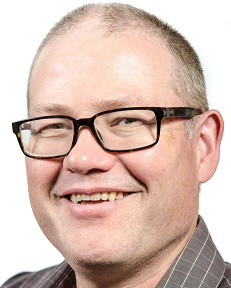
Martin Jaatun
View MoreMartin Gilje Jaatun is a Senior Scientist at SINTEF Digital in Trondheim, Norway and Adjunct Professor at the University of Stavanger. Formerly, he was Editor-in-Chief of the International Journal of Secure Software Engineering (IJSSE). Previous positions include scientist at the Norwegian Defence Research Establishment (FFI), and Senior Lecturer in information security at the Bodø Graduate School of Business. His research interests include software security, security in cloud computing, and security of critical information infrastructures.
Martin received an MSc in telematics from the Norwegian Institute of Technology. He’s vice chairman of the Cloud Computing Association and a senior member of IEEE.
His research interests include security in cloud computing and security of critical information infrastructures (power, water, oil, …) — Most of his papers are (eventually) available at: http://jaatun.no/papers — ORCID: http://orcid.org/0000-0001-7127-6694
Selected Publications
- What Could Possibly Go Wrong? Smart Grid Misuse Case Scenarios
Inger Anne Tøndel, Ravishankar Borgaonkar, Martin Gilje Jaatun and Christian Frøystad - An Empirical Study of CERT Capacity in the North Sea
Martin Gilje Jaatun, Lars Bodsberg, Tor Olav Grøtan and Marie Elisabeth Gaup Moe - Federated Identity Management – We Built It; Why Won’t They Come?
Jostein Jensen and Martin Gilje Jaatun - Towards Strong Accountability for Cloud Service Providers
Martin Gilje Jaatun, Siani Pearson, Frederic Gittler and Ronald E. Leenes
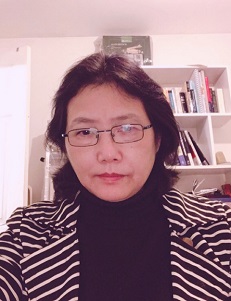
Mary He
View MoreDr Hongmei He is a senior lecturer in the Institute of Artificial Intelligence (IAI) in the School of Computer Science and Informatics at De Montfort University. Dr He has expertise in both AI and Cyber Security. Her research focuses on AI for Robots and Autonomous Systems, especially for the safety and security of autonomous systems. She has done sustainable research on cognitive cyber security with machine learning techniques, such as spam detection, web-robot detection and cybersecurity of embedded systems. She proposed a paradigm of Human-Centred AI for Trustworthy Robots and Autonomous Systems. Also, she is interested in transferring her research outcomes towards practice. She is the senior member of IEEE in Computational Intelligence, Cybersecurity, RAS and Women in Engineering Societies, and the chair of task force on “AI and Edge Computing for Robots and Autonomous Systems” in the Adaptive Dynamic Programming & Reinforcement Learning Technic Committee in IEEE Computational Intelligence Society, and she is actively serving for IEEE UK & Ireland RAS chapter as the chapter secretary.
Cyber Science 2020
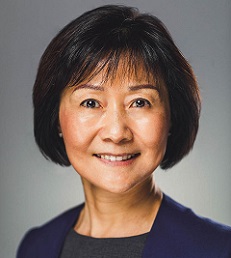
Ruoyi Zhou
View MoreDr Ruoyi Zhou is the Director of IBM Research – Ireland with the responsibilities to drive innovation and grow a world-class industrial research organization in AI, Internet of Things (IoT), high performance computing, mathematical modeling, quantum computing, and other cutting-edge sciences and technologies.
Prior to her current role, she served as the Director of IBM Accessibility Research where she oversaw development of advanced technology to enable accessibility for IBM products, solutions, and services; creation of AI-powered assistive technology for people with disabilities; and exploration of IoT-based AI solutions for Aging. She also served on the Industry Advisory Council at the Colorado University College of Engineering & Applied Science and on the Board of Advisors for G3ict. She initiated and launched the Accessibility track at the Grace Hopper Conference and served as a committee member. Additionally, Ruoyi was the Co-Director of AI for Healthy Living, a joint research center between IBM and the University of California, San Diego.
Previously, Ruoyi was the Director responsible for the partnership between IBM Research and IBM Global Business Services. In this role, she led a global team and grew services revenue by applying differentiating technologies to solve challenging business problems. During her tenure as a senior research manager, Ruoyi led a cross-disciplinary team in tackling one of the most difficult problems in IBM’s strategic outsourcing business: forecasting deal cost and pricing, using complex mathematical modeling and predictive analytics. Before stepping into research management, Ruoyi served as the Chief of Staff in the Lab Director’s office at IBM’s Almaden Research Center. Ruoyi spent the early part of her career in IBM’s Storage Systems Group as an engineer designing magnetic recording heads and developing thin-film disk technology. Prior to joining IBM, Ruoyi was a postdoctoral researcher at the Los Alamos National Laboratory, where she studied and researched process and characterization of high-temperature superconductors.
Ruoyi holds a Ph.D. in Materials Science from Rutgers University. She has over 30 publications and is the recipient of several patents. She was a YWCA TWIN Award honoree, one of the most prestigious awards in the United States, recognizing successful women executives for their outstanding achievements.
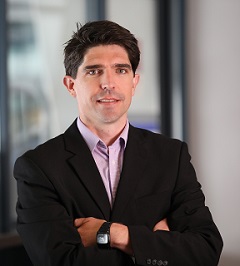
Wayne Bursey
View MoreWayne Bursey is the Industrial Cyber Security Lead with Siemens Ltd., Dublin, focusing on OT (Operational Technology) Security for our customers Industrial Control Systems and Environments. In the age of Digitalisation, Cyber Security and Networks are the core pillars to deliver this evolution.
Wayne has worked with Siemens for 20 years serving industrial customers, distribution partners and OEMs to deliver solutions and services in automation, networking, digitalization and data driven IoT platforms within Industry 4.0.
Wayne holds a BTEC in Industrial Control Systems.
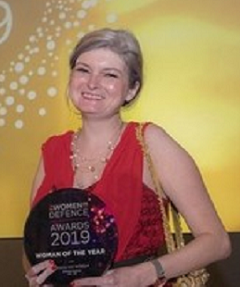
Phillippa M. Spencer
View MoreDr Phillippa M. Spencer is the 2019 winner of the Woman of the Year Women in Defence and Outstanding Contribution to Defence Awards. The annual awards, this year held at Guildhall in London, recognise exceptional women across UK defence. With more than 470 nominations received, the competition was high.
Phillippa was cited for her work as a polymath, applying mathematical and statistical thinking across a number of areas such as cyber, artificial intelligence, data fusion, chemistry and biology; She has worked at Defence Science and Technology Laboratory (Dstl) for 17 years.
Her analysis was used amongst healthcare workers in Sierra Leone during the Ebola outbreak and she was a key subject matter expert in bringing the F-35 fighter into service. More recently, Phillippa was involved in the clean-up of Salisbury following the Novichok incident, where she applied statistical modelling to determine whether locations or vehicles were safe to use.
This year Phillippa was awarded a patent for her method of interrogating mixtures of nuclear acids by short tandem repeat analysis. This complements her existing patents at Dstl including for the pre-symptomatic diagnosis of sepsis.
On receiving her award Phillippa said:
“This was a huge shock to me and a tremendous honour. I want to thank all the people who have supported me throughout the years, especially the F-35 team. Becoming Woman of the Year is a humbling, yet exciting experience.” I am lucky enough to have had a diverse and extremely fun career and I hope that I have many years to come. I would ask all of my colleagues to nominate more women next year as I know there are many others like me who have made significant contribution to defence.”
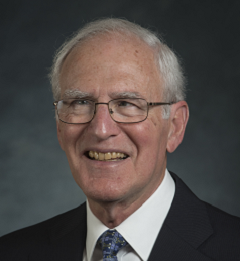
Steven B. Lipner
View MoreSteven B. Lipner is executive director of SAFECode, a non-profit industry organization dedicated to improving software assurance and is an adjunct professor of computer science at Carnegie Mellon University. He has almost fifty years’ experience as a researcher, engineering manager, and general manager in cybersecurity. Lipner retired in 2015 as partner director of software security at Microsoft, where he created and led Microsoft’s Security Development Lifecycle (SDL) team and was responsible for the definition, tools development and company-wide execution of Microsoft’s internal SDL process and for tools and programs that made the SDL available to organizations beyond Microsoft. Lipner was also responsible for Microsoft’s corporate strategies and policies for supply chain security and for strategies related to government security evaluation of Microsoft products. He served as the Microsoft member and board chair of SAFECode.
Lipner has been involved throughout his career as a contributor to the development of government policies related to cybersecurity. He is now serving his third term on the United States Information Security and Privacy Advisory Board and currently serves as the board chair.
Lipner was elected to the National Academy of Engineering in 2017 and has served on numerous National Academies committees. He was elected to the National Cybersecurity Hall of Fame in 2015. Lipner holds twelve U.S. patents for inventions in the field of computer and network security. He received an S.B. and S.M. in civil engineering from MIT and attended the Harvard Business School’s Program for Management Development.

Vincent Blake
View MoreVincent Blake is Pearson’s Vice President, Information Technology Security Officer (ITSO) and Governance, Risk, Compliance and Assurance, joining in September 2014.
Vincent is accountable for Pearson’s Global Enterprise Platform and Cloud information security framework. This includes executing Pearson’s Platform Security by Design strategy and in-market Product security assurance. Vincent is responsible for security governance and compliance across 100+ countries, ensuring it is deployed and managed to protect the business and the learner’s information assets. Pearson is the world’s leading learning company, we help people all over the world make progress in their lives through learning. Smart and innovative uses of technology are vital to Pearson, especially as we become more global, more open and more closely connected with learners.
Prior to joining Pearson, Vincent worked for Raytheon Systems in the UK for five years, establishing the EMEA Cyber Security Practice, supporting customers within government, defence and intelligence, and spent two years as the Chief Security Officer for the e-Borders programme.
Before Raytheon, Vincent spent twelve years in the communications industry in information security and fraud management leadership roles.
Vincent is a Certified Information Systems Security Professional (CISSP), Certified Cloud Security Professional (CCSP) and Information Systems Security Management Professional (ISSMP).

Paul C Dwyer
View MorePaul C Dwyer is recognised as one of the world’s foremost experts on cyber security, risk and privacy. As CEO of Cyber Risk International he specialises in corporate and enterprise security, development of cyber defence programs, and business operations protection for CRI clients.
With responsibility for the protection of trillions of euros in global money movement and critical infrastructure technologies that protect hundreds of thousands of companies’ and governments’ interests in more than 100 countries.
He has been certified an industry professional by the International Information Security Certification Consortium (ISC2) and the Information System Audit and Control Association (ISACA) and selected for the IT Governance Expert Panel. Approved by the National Crime Faculty and the HTCN High Tech Crime Network.
Paul has worked extensively around the world and his diverse career spans more than 25 years working with military, law enforcement, and the commercial sector.
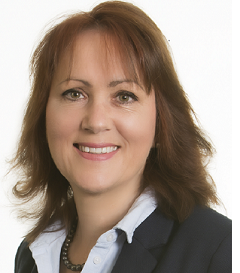
Valerie Lyons
View MoreValerie Lyons is COO of BH Consulting, where she designs and delivers projects across a vast range of topics such as GDPR, Data Protection, ISO 27001, CyberStrategy, Enterprise Security Risk and Incident Response. Prior to BH Consulting, she spent almost 15 years as Head of Information Risk in KBC Bank and has extensive senior-level experience in the financial services sector. Her background spans compliance, corporate and ICT governance, data protection, information privacy, cyber auditing, cyber risk management, cyber strategy and team leadership.
Valerie has an in-depth knowledge of GDPR and is frequently invited to speak at industry conferences, most recently keynoting at COSAC’s International Security Conference 2019. Valerie is currently pursuing a PhD in DCU’s Business School (under a scholarship award from the Irish Research Council) researching the effectiveness of organizations’ privacy protection orientations. A certified CISSP for almost 20 years, she holds a Master of Science in Business Leadership from University College Cork and a BSc in Information Systems from Trinity College Dublin.
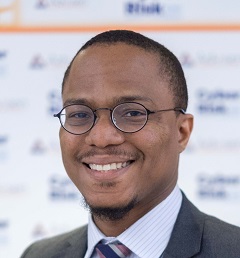
Jason Nurse
View MoreDr Jason R.C. Nurse is an Assistant Professor in Cyber Security at the University of Kent. He is also a Visiting Academic at the University of Oxford, a Visiting Fellow in Defence and Security at Cranfield University, and a professional member of various associations relating to cyber security research and practice. Prior to joining Kent in 2018, Dr Nurse was a Research Fellow at the University of Oxford for 7 years. For his research into the interdisciplinary aspects of cyber, Dr Nurse was nominated as a Rising Star within the UK’s EPSRC RISE Awards Campaign. Specifically, his research concentrates on investigating interdisciplinary approaches to enhance and maintain cyber security for organisations, individuals and governments. This considers the full spectrum of technologies in use today and encompasses topics such as security risk management in cyberspace, privacy and security in the internet-of-things, cyber insurance, and dimensions of cybercrime.
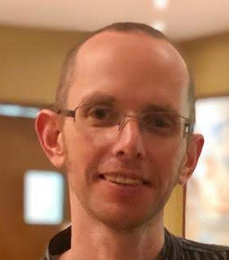
Siôn Lloyd
View MoreDr Siôn Lloyd is a member of the Internet Corporation for Assigned Names and Numbers (ICANN’s) Internet identifiers Security, Stability and Resiliency Team.
Siôn’s work is currently focused on understanding the ways in which bad actors are making use of the global COVID-19 pandemic to promote their campaigns; specifically, around the misuse of the Domain Name System (DNS).
He has worked in the domain name industry for over 20 years and has been researching the use and misuse of DNS from a security point of view for much of that time. He has seen how the DNS can be used in attack and defence and how it can be made more secure; even for those people who have never heard of it and don’t realise that they are using it.

James Chappell
View MoreJames Chappell is the Founder & Chief Innovation Officer at Digital Shadows. He has led teams in InfoSec and Cybersecurity since 1997, working across the private sector and government organisations helping them to understand technical aspects of information security.
James spent over ten years of his career as a security architect and deputy head of Information Security professional at BAE Systems Detica; he previously worked at Nortel Networks in the United States.
James has always been fascinated by innovative ways of countering the growth of crime and fraud in computer networks and developing effective ways of measuring and managing the security big picture. In 2011 this journey led to an exploration of digital footprints, and their impact on the security of the modern business.
James is a regular speaker at technology events and cyber security conferences across the globe and is regularly quoted in the press.
Cyber Science 2019
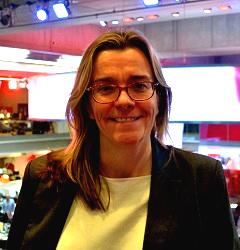
Ros Smith
View MoreRos Smith, Senior Product Manager, British Broadcasting Corporation (BBC), is relative newcomer to the world of Identity and Access Management (IAM). She has worked at the BBC for over 19 years. Until 2018 she worked on Production and Editorial side, having been a Radio Producer for Science Radio, Woman’s Hour and The Big Toe Radio Show; Deputy Editor of the award winning BBC News School Report; Project Manager at BBC Media Action and most recently Acting Head of BBC Weather. She is now Senior Product Manager in Identity and Access Management, and has found a new found enthusiasm for the importance of IAM in the world… and has learnt more acronyms than she ever imagined possible. .

Simon Wilson
View MoreSimon Wilson, CTO, UK & Ireland for Aruba, a Hewlett Packard Enterprise Company. In this role he works as a brand ambassador articulating the Aruba vision for experience driven infrastructure. Simon also works closely with Aruba customers and partners across all markets to design smart and secure workspaces that maximise business productivity. With over 25 years’ experience in the networking industry, Simon joined HPE in March 2014.
Before this, Simon was with Nortel/Avaya for sixteen years where he worked across product management, marketing and channel operations roles. His experience also spans network design and electronic engineering. Simon led the EMEA product marketing team and worked in Nortel’s Global product marketing organisation in North America. Prior to that, he had worked in the SMB reseller market and in distribution. Simon holds a BTEC in Engineering from Croydon Technical College in the UK.

Jean-Jacques Sahel
View MoreJean-Jacques Sahel, Managing Director, Europe, ICANN, has been involved in international government and regulatory affairs for over 15 years in both the private and government sectors. He was appointed Managing Director of ICANN’s Brussels office in July 2017 to lead the organisation’s corporate strategy and coordinate its operations across the European region. Since 2014 he has led ICANN’s strategic plan for outreach, support and engagement with governments, private sector and user groups throughout Europe, and worldwide for civil society.
Before joining ICANN, Mr Sahel headed government and regulatory affairs for Skype, then digital policy at Microsoft for the Europe, Middle-East & Africa regions. He had started his career in the City of London, before spending several years in the UK Government, leading in particular its international telecommunications policy.
Ex officio, Mr Sahel has chaired the UK Chapter of the International Institute of Communications (IIC) since 2009 and was a member of OSAB, the Spectrum Advisory Board of UK communications regulator Ofcom for 2 terms until 2016. He has authored articles and research in both mainstream media and academic publications particularly on Internet policy and governance.

John Crain
View MoreJohn Crain is Chief Security, Stability & Resiliency Office at The Internet Corporation for Assigned Names and Numbers (ICANN), responsible for establishing strategy, planning and execution for ICANN’s external Security, Stability and Resiliency programs. He works on a cross functional basis with the ICANN executive team, staff and the community to enable and enhance capabilities that improve the overall security, stability and resiliency of the Internet’s Identifier Systems and associated infrastructures and represents ICANN in operational and technical dialogues and forums to ensure the full communities engagement with these programs.
The Internet Corporation for Assigned Names and Numbers (ICANN) is an internationally organized, non-profit corporation that has responsibility for Internet Protocol (IP) address space allocation, protocol identifier assignment, generic (gTLD) and country code (ccTLD) Top-Level Domain name system management, and root server system management functions.
Prior to his time at ICANN, John worked as part of the executive management team at the RIPE NCC in Amsterdam. The RIPE NCC is the Regional Internet Registry (RIR) that provides Internet resource allocations for Europe and surrounding areas. John has been directly involved in the administration of Internet Identifiers since his start at the RIPE NCC in 1995 and has worked in all areas of IP address administration. John also has extensive experience in the area of DNS administration and managing Internet infrastructure services. Currently he is responsible for the management of the L-Root server, one of the Internet’s 13 “Root Servers”. Before becoming involved in Internet Administration John worked as a Design Engineer in composite materials research and development. In that role John was also responsible for local area networking of Computer Aided Design Systems and for writing and developing custom software applications.
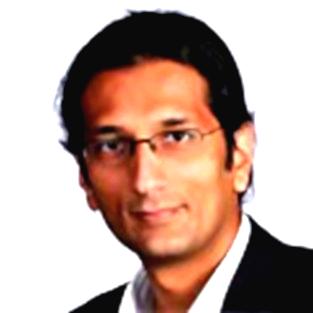
Professor Awais Rashid
View MoreAwais Rashid is Professor of Cyber Security at University of Bristol, UK. His research focuses on security of large-scale connected infrastructures, software security and human behaviours (adversarial and non-adversarial) in these contexts. He leads projects as part of the UK Research Institute on Trustworthy, Interconnected Cyber-Physical Systems (RITICS) and UK Research Institute on Science of Cyber Security (RISCS), co-leads the Security and Safety theme within the UK Hub on Cyber Security of Internet of Things (PETRAS) and is a member of the UK Centre for Research and Evidence on Security Threats (CREST). He also leads the Cyber Security Body of Knowledge (CyBOK) project which aims to provide much needed foundations for education and training programmes in this area.

Professor Sadie Creese
View MoreSadie Creese is a Professor of Cyber Security in the Department of Computer Science at the University of Oxford. She teaches threat detection, risk assessment and operational aspects of security. Her current research portfolio includes threat modelling and detection, visual analytics for cybersecurity, risk propagation logics and communication, resilience strategies, privacy, vulnerability of distributed ledgers, and understanding cyber-harm. She is Principal Investigator on the AXIS Insurance Company sponsored project “Analysing Cyber Value-at-Risk” focused on developing a method for predicting potential harms arising from cyber-attacks. She is a co-Investigator on the PETRAS EPSRC sponsored Internet of Things Research Hub project “Cyber Risk Assessment for Coupled Systems” which is developing a new risk assessment method aimed at helping organisations prepare for the threats and vulnerabilities we will face as the Internet of Things evolves. She was the founding Director of the Global Cyber Security Capacity Centre (GCSCC) at the Oxford Martin School where she continues to serve as a Director conducting research into what constitutes national cybersecurity capacity, working with countries and international organisations around the world. She was the founding Director of Oxford’s Cybersecurity network launched in 2008 and now called CyberSecurity@Oxford, and is a member of the World Economic Forum’s Global Council on Cyber Security. Sadie is a Fellow of Worcester College, Oxford.

Professor Mike Hinchey
View MoreProfessor Mike Hinchey is Chair of IEEE UK & Ireland Section for 2018-2019. He is President of IFIP, the International Federation for Information Processing (www.ifip.org) and is Emeritus Director of Lero-the Irish Software Research Centre and Professor of Software Engineering at University of Limerick, Ireland. Prior to joining Lero, Professor Hinchey was the Director of the NASA Software Engineering Laboratory. In 2009, he was awarded NASA’s Kerley Award as Innovator of the Year and is recognized in the NASA Inventors Hall of Fame. Professor Hinchey holds a B.Sc. in Computer Systems from University of Limerick, an M.Sc. in Computation from University of Oxford and a PhD in Computer Science from University of Cambridge. Professor Hinchey is a Chartered Engineer, Chartered Engineering Professional, Chartered Mathematician and Charted Information Technology Professional, as well as a Fellow of the IET, British Computer Society and Irish Computer Society. He is Editor-in-Chief of Innovations in Systems and Software Engineering: a NASA Journal and Journal of the Brazilian Computer Society. In January 2018, he became an Honorary Fellow of the Computer Society of India.

Dr Aunshul Rege
View MoreAunshul Rege, PhD, is an Associate Professor with the Department of Criminal Justice at Temple University, USA. She holds a PhD and MA in Criminal Justice, an MA and BA in Criminology, and a BS in Computer Science. She has been researching proactive cybersecurity in the context of cybercrimes against critical infrastructures for over 10 years. Specifically, her National Science Foundation funded research projects examine adversarial and defender behavior, decision-making, adaptations, modus operandi, and group dynamics. Dr. Rege’s work employs qualitative approaches of observing real-time cybersecurity exercises to understand the behavior of adversaries and defenders. She intersects theoretical frameworks and methodologies from criminology with hard science approaches (time series analysis, graph theory, simulations, and machine learning) to foster innovative and multidisciplinary proactive cybersecurity research. Dr. Rege’s has been published in the Journal of Information Warfare, Journal of Homeland Security and Emergency Management, the Security Journal, and the IEEE Intelligent Systems. She is also passionate about educating the next generation workforce across the social and hard sciences about the relevance of the human factor in cybersecurity.
Cyber Science 2018
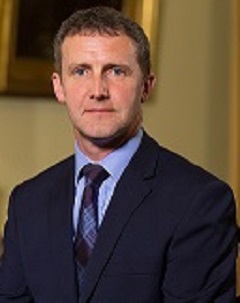
Michael Matheson, MSP
View MoreMichael Matheson MSP is the Cabinet Secretary for Justice, and a Member of the Scottish Parliament. He studied at Queen Margaret College, Edinburgh where he obtained a BSc in Occupational Therapy. He also holds a BA and a Diploma in Applied Social Sciences from the Open University.
Prior to becoming an MSP Michael practised as a Community Occupational Therapist with Stirling Council, Central Regional Council, and Highland Regional Council. He was elected as the MSP for Falkirk West following the May 2007 elections. Before that he was a Regional MSP for Central Scotland from 1999-2007. Before being appointed Cabinet Secretary for Justice he was the Minister for Public Health. Michael was Vice Convenor of the European and External Relations Committee. He also sat on the Scottish Parliament’s Health and Sport Committee, and previously served on the Justice and Enterprise and Culture Committees. He was re-elected at the May 5, 2011 election, and thereafter appointed Minister for Public Health.

Professor Sadie Creese
View MoreSadie Creese is a Professor of Cyber Security in the Department of Computer Science at the University of Oxford. She teaches threat detection, risk assessment and operational aspects of security. Her current research portfolio includes threat modelling and detection, visual analytics for cybersecurity, risk propagation logics and communication, resilience strategies, privacy, vulnerability of distributed ledgers, and understanding cyber-harm. She is Principal Investigator on the AXIS Insurance Company sponsored project “Analysing Cyber Value-at-Risk” focused on developing a method for predicting potential harms arising from cyber-attacks. She is a co-Investigator on the PETRAS EPSRC sponsored Internet of Things Research Hub project “Cyber Risk Assessment for Coupled Systems” which is developing a new risk assessment method aimed at helping organisations prepare for the threats and vulnerabilities we will face as the Internet of Things evolves. She was the founding Director of the Global Cyber Security Capacity Centre (GCSCC) at the Oxford Martin School where she continues to serve as a Director conducting research into what constitutes national cybersecurity capacity, working with countries and international organisations around the world. She was the founding Director of Oxford’s Cybersecurity network launched in 2008 and now called CyberSecurity@Oxford, and is a member of the World Economic Forum’s Global Council on Cyber Security. Sadie is a Fellow of Worcester College, Oxford.
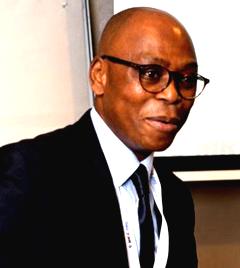
Dr Cyril Onwubiko
View MoreDr Cyril Onwubiko is the Secretary – IEEE UK & Ireland, and Director, Cyber Security and Intelligence at Research Series Limited, where he is responsible for directing strategy, IA governance and cyber security. Prior to Research Series, he had worked in the Financial Services, Telecommunication, Health, Government and Public services Sectors. He is experienced in Cyber Security, Security Information and Event Management, Data Fusion, Intrusion Detection Systems and Computer Network Security; and vastly knowledgeable in Information Assurance, Risk Assessment & Management. He holds a PhD in Computer Network Security from Kingston University, London, UK; MSc in Internet Engineering, from University of East London, London, UK, and BSc, first class honours, in Computer Science & Mathematics. He has authored several books including “Security Framework for Attack Detection in Computer Networks” and “Concepts in Numerical Methods.”, and edited books such as “Situational Awareness in Computer Network Defense: Principles, Methods & Applications“, and Cyber Science 2015 – International Conference on Cyber Situational Awareness, Data Analytics and Assessment. He has over 30 articles published in leading and most prestigious academic journals and conferences.

Professor Jens Myrup Pedersen
View MoreJens Myrup Pedersen is Associate Professor at Aalborg University, Denmark. After finishing his M.Sc. in Mathematics and Computer science he did his PhD in the field of network planning, and through close collaboration with Danish ISPs the work developed into focusing on cyber security. Today his research is focusing mainly on security from a network point of view, and includes network-based detection of malicious activity using e.g. machine learning and DNS traffic analysis – still carried out in close collaboration with industrial partners. Together with his students he has been exploring the security weaknesses of a number of embedded and IoT devices, including demonstration of poor security in state-of-the art Industry 4.0 production lines. He is an active player in the development of cyber security educations in Denmark, and is currently leading the work of establishing a Danish National Training Platform. He has a strong interest in internationalisation of education and promotion of collaboration between students across countries and disciplines – an interest that has led to coordination of two Erasmus+ Strategic Partnerships. In addition to his employment at Aalborg University he works as external lecturer at Riga Technical University, Latvia, he is board member in companies related to energy and infrastructure, and he also sits on the board of the Society of Telecommunications within the Danish Society of Engineers.
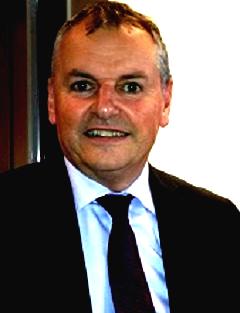
DI Eamonn Keane
View MoreDetective Inspector Eamonn Keane has worked with the Irish and Scottish Police for 33 years principally in the investigation of terrorism, serious crime, criminal investigation, public protection and most recently digital crime and forensic delivery.
His current portfolio is with the Cybercrime, Police Scotland, investigating all aspects of serious and organised crime across Scotland with particular emphasis on technology facilitated crime to include malware proliferation, cybercrime, acquisitive crime, child sexual exploitation, drug supply, and social network abuse.
Eamonn also works extensively with the Scottish Business Resilience Centre championing the ethos of prevention through preparation and intelligence sharing for the Scottish and UK business community.

Mr Stu Hirst
View MoreStu Hurst is currently the Head of Security Engineering at Photobox Group (which includes Moonpig, PosterXXL and Hofmann).
He was instrumental in building Skyscanner’s Security team from 2015-2017, having led them to the final of SC Magazine’s Security Team of The Year 2017.
He has previously worked in security at The Trainline and was part of the Cyber Leadership Team at Capital One UK.
He has twice been nominated as a finalist for Cyber Evangelist of The Year at the Scottish Cyber Awards and runs one of Scotland’s leading Tech Meet Ups; Security Scotland.
Stu has appeared at numerous leading Security events such as InfoSec Europe, Cloud Expo Europe and Future of Cyber Security.
Twitter: @StuHirstinfosec

Professor Karen Renaud
View MoreKaren is a professor of Cyber Security at the University of Abertay, and Professor Extraordinarius, University of South Africa. She is a recipient of various awards including the Fulbright Cyber Security Scholarship.
Her research focuses on human-centred security, a branch of Human Computer Interaction (HCI). She is interested in the interplay between users and security in the context of societal and industrial use. She wants to work towards creating a natural easy yet secure interaction between humans and devices. Her work has a strong development, experimental and deployment focus, testing solutions in practical situations. She has come up with several novel solutions to improve usability in a wide range of situations; and has also done fundamental work in understanding people’s mental models of security in a variety of applications and contexts.
She has a wide range of other interests, including electronic voting, accessible technology, mobile phone design for elderly users, knowledge visualisation and the use of email in organisations.
Cyber Science 2017
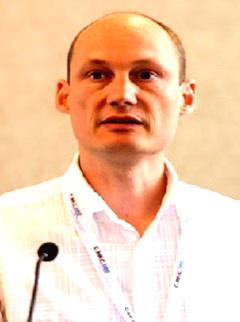
Dr Eckhard Pfluegel
View MoreDr Pfluegel obtained a Ph.D. in Computer Science at Université Joseph Fourier, Grenoble (France) in 1999 after graduating with a First Class degree (“Diplom”) in Computer Science (Equivalent of UK Honours and Master’s degree) in 1999 at Universität Karlsruhe (now known as KIT), Karlsruhe (Germany). An experienced Senior Lecturer with 3 years of industrial practice in software engineering and over 13 years of research expertise, teaching responsibilities and professional practice, his current main area of specialism is network and cyber security. He has an active and continuous portfolio of over 40 peer-reviewed international journal and conference publications, serves as member of several technical programme committees and regularly reviews for international journals. Dr Pfluegel is leading an educational programme in cyber and network security at postgraduate level and frequently gives public lectures and talks on the topic of cyber and computer security awareness. He particularly enjoys research-informed teaching in order to bring in cutting-edge knowledge from his research into his lectures.
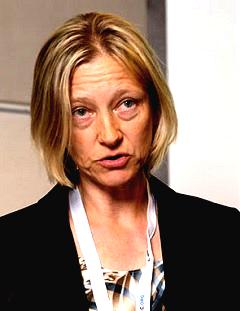
Dr Janne Hagen
View MoreDr Hagen, from April 2016 is employed as Head Engineer at the Norwegian Water Resources and Energy Directorate (NVE), working on cybersecurity in the Energy Sector in Norway. She has previously worked as a Researcher and Consultant, most of the time employed at the Norwegian Defence Research Establishment (FFI) conducting research on societal security and protection of critical infrastructures. Since 2005, her scientific work focused primarily on cybersecurity, and the vulnerability of the digital society, lately with focus on the Energy Sector. She has been member of several expert groups in Norway, including the Norwegian Governmental Committee of Digital Vulnerabilities in Society that delivered an Official Norwegian Report (NOU) to the Ministry of Justice and Public Security in November 2015.

Dr Cyril Onwubiko
View MoreDr Cyril Onwubiko is the Secretary – IEEE UK & Ireland, and Director, Cyber Security and Intelligence at Research Series Limited, where he is responsible for directing strategy, IA governance and cyber security. Prior to Research Series, he had worked in the Financial Services, Telecommunication, Health, Government and Public services Sectors. He is experienced in Cyber Security, Security Information and Event Management, Data Fusion, Intrusion Detection Systems and Computer Network Security; and vastly knowledgeable in Information Assurance, Risk Assessment & Management. He holds a PhD in Computer Network Security from Kingston University, London, UK; MSc in Internet Engineering, from University of East London, London, UK, and BSc, first class honours, in Computer Science & Mathematics. He has authored several books including “Security Framework for Attack Detection in Computer Networks” and “Concepts in Numerical Methods.”, and edited books such as “Situational Awareness in Computer Network Defense: Principles, Methods & Applications“, and Cyber Science 2015 – International Conference on Cyber Situational Awareness, Data Analytics and Assessment. He has over 30 articles published in leading and most prestigious academic journals and conferences.
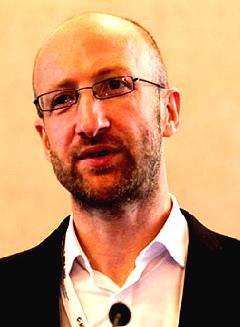
Professor Kevin Curran
View MoreKevin Curran joined the School of Computing and Intelligent Systems in 1999. Kevin’s research and teaching interests are in the areas of Computer Networks, Location Determination Technologies and Security.
Kevin’s achievements include winning and managing UK & European Framework projects and Technology Transfer Schemes. Kevin hasmade significant contributions to advancing the knowledge and understanding of computer networking and systems, evidenced by over 800 published works. He is perhaps most well-known for his work on location positioning within indoor environments and Internet security. His expertise has been acknowledged by invitations to present his work at international conferences, overseas universities and research laboratories. He is a regular contributor to print, online, radio & TV news on computing & security issues. He was the recipient of an Engineering and Technology Board Visiting Lectureship for Exceptional Engineers and is an IEEE Technical Expert for Internet/Security matters since 2008. He is a member of the EPSRC Peer Review College.
Professor Curran has chaired sessions and participated in organising committees for many highly-respected international conferences and workshops. He was the founding Editor in Chief of the International Journal of Ambient Computing and Intelligence and is also a member of numerous Journal Editorial boards and international conference organising committees. He has authored a number of books and is the recipient of various patents. He has served as an advisor to the British Computer Society in regard to the computer industry standards and is a member of BCS and IEEE Technology Specialist Groups and various other professional bodies.
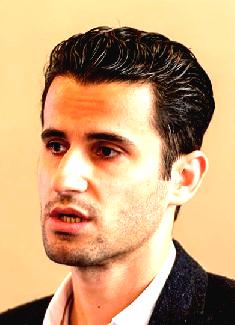
Dr Mahmoud Eiza
View MoreDr Mahmoud Hashem Eiza is a Lecturer in Computing (Computer and Network Security) at the School of Physical Sciences and Computing, University of Central Lancashire. He received his Ph.D. in Electronic and Computer Engineering from Brunel University London, U.K., in 2015. His research interests include computer and network security, with specific interests in quality-of-service and wireless network security and privacy in Vehicular Networks, Smart Grids, Cloud Computing, and Internet of Things.
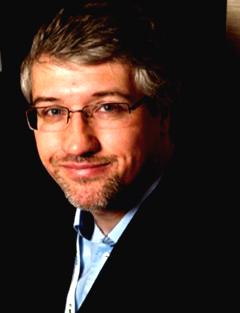
Dr Andrew Lenaghan
View MoreDr Andrew Lenaghan is a Computer Security Specialist at Oxford University. He is a member of the Computer Emergency Response Team (CERT) responsible for protecting the University’s network infrastructure, and users, from attack. Prior to this, he was a Senior Security Consultant and Information Security Officer in the finance sector for 8 years, advising firms in the UK, Europe and the US. He has been a regular speaker and chair of the Electronic Money Association’s Fraud and IT Security subcommittee; highlighting emerging fraud and IT security issues. As an academic at Kingston University, he was a Principal Lecturer in Data Communications and a founding member of the Networking and Communication research group. Andrew holds a degree in Computer Science, an MSc Human-Computer Interaction and has a doctorate in computer vision and pattern recognition
Cyber Science 2016
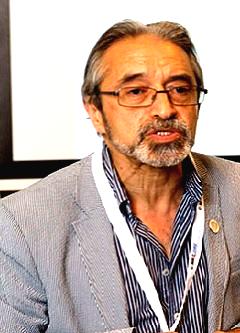
Professor Ali Hessami
View MoreProfessor Ali Hessami is Past Chair of the IEEE United Kingdom and Ireland, and the Director of R&D and Innovation at Vega Systems and Director of System of Systems Engineering Centre at UEL, London. He is an expert in the systems assurance and safety, security, sustainability and knowledge assessment/management methodologies and has a background in design and development of advanced control systems for business and safety critical industrial applications.Ali project managed the safety analysis and assessment of European Rail Traffic Management System’s ETCS for the EU Commission under the ESROG project. He also project managed the development of an advanced and systematic Safety & Risk Management System for EU Commission under SAMRail project,in support of the pan European Railway Safety Directive.He contributed significant original material to CENELEC WGA10 Report TR-50451 on Allocation of Safety Integrity & TR-50506-1 on the Cross-Acceptance of Signalling Systems. He represents UK on CENELEC Railway Standards committees. He was appointed by CENELEC as convenor of WGA11for review of EN50128 Software Safety Standard and Convenor of RG3 in WG14,where he is responsible for update and restructuring of the software,hardware and system safety standards in CENELEC.
Ali also heads the System Safety & Security Technical Committee at IEEE Systems and Cybernetics Society (SMC). Ali is a Visiting Professor at London City University’s Centre for Systems and Control in the School of Engineering & Mathematics and at Beijing Jiaotong University School of Electronics and Information Engineering. He is also a Fellow of Royal Society of Arts (FRSA), Fellow of the IET, a Senior Member of IEEE and a member of the Security Institute.
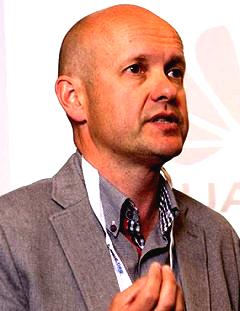
Professor Olav Lysne
View MoreOlav Lysne is Director and founder of the Center for Resilient Networks and Applications (CRNA) at Simula research laboratory, and professor in computer science at Simula and the University of Oslo. He received the Master’s degree in 1988 and Dr. Scient. degree in 1992, both at the University of Oslo. The early research contributions of Lysne were in the field of algebraic specification and term rewriting, with a particular emphasis on automated deduction. While working in this field he was a visiting researcher at Université de Paris-Sud. Later in his career he has been working on resilient computer architecture for supercomputing and cloud infrastructures, routing and switching techniques for IP-networks and measurement of national network infrastructures. Lysne was the leader of the Norwegian Government’s Commission on digital vulnerability, which submitted its report to the Minster of Justice in November 2015.
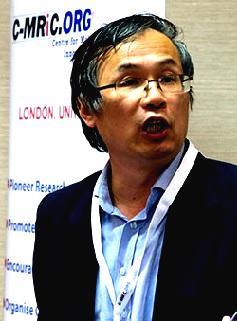
Professor Frank Wang
View MoreFrank Z. Wang is a Professor in Future Computing, and Head of School of Computing, University of Kent, UK. The School of Computing was formally opened by Her Majesty the Queen. Professor Wang’s research interests include cloud computing, big data, green computing, brain computing and future computing. He has been invited to deliver keynote speeches and invited talks to report his research worldwide, for example at Princeton University, Carnegie Mellon University, CERN, Hong Kong University of Sci. & Tech., Tsinghua University (Taiwan), Jawaharlal Nehru University, Aristotle University, and University of Johannesburg. In 2004, he was appointed as Chair & Professor, Director of Centre for Grid Computing at CCHPCF (Cambridge-Cranfield High Performance Computing Facility). CCHPCF is a collaborative research facility in the Universities of Cambridge and Cranfield (with an investment size of £40 million). Prof Wang and his team have won an ACM/IEEE Super Computing finalist award. Prof Wang is Chairman (UK & Republic of Ireland Chapter) of the IEEE Computer Society and Fellow of British Computer Society. He has served the Irish Government High End Computing Panel for Science Foundation Ireland (SFI) and the UK Government EPSRC e-Science Panel.

Dr Andrew Lenaghan
View MoreDr Andrew Lenaghan is a Computer Security Specialist at Oxford University. He is a member of the Computer Emergency Response Team (CERT) responsible for protecting the University’s network infrastructure, and users, from attack. Prior to this, he was a Senior Security Consultant and Information Security Officer in the finance sector for 8 years, advising firms in the UK, Europe and the US. He has been a regular speaker and chair of the Electronic Money Association’s Fraud and IT Security subcommittee; highlighting emerging fraud and IT security issues. As an academic at Kingston University, he was a Principal Lecturer in Data Communications and a founding member of the Networking and Communication research group. Andrew holds a degree in Computer Science, an MSc Human-Computer Interaction and has a doctorate in computer vision and pattern recognition
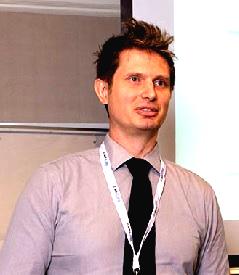
Dr Nick Savage
View MoreI joined the University in 2000 to work as a researcher on an EPSRC project characterising the indoor communications channel and a Radiocommunications Agency (now OFCOM) sponsored project characterising radiowave propagation through vegetation. I previously worked for a defence contractor and a computer networking company.
I started work as a lecturer in the Department of Electronic and Computer Engineering in 2002 where I became the admissions tutor and programme coordinator for all undergraduate and integrated masters Electronic Engineering, Computer Engineering and Networking degree programmes. I was the course leader for the BSc (Hons) Computer Networks degree programme and the programme manager for the Foundation Degree (FDEng) in Electronic Engineering.
I am now the Head of the School of Computing, responsible for the operational efficiency and effectiveness of the School; as well as leading the School towards realising the University’s strategic vision. I also have a keen research interest in the development of secure systems, identifying vulnerabilities in systems, utilising features to identify users and network protocol analysis.
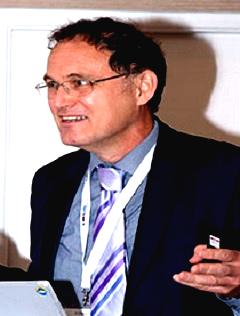
Dr Thomas Owens
View MoreDr Owens is the co-editor of the book on Situational Awareness in Computer Network Defense: Principle, Methods and Application, IGI Global, USA. He was the project coordinator of the European Commission IST FP5 STREP Project CONFLUENT, of the IST FP6 Integrated Project INSTINCT, and of the FP6 SSA Project PARTAKE. He is currently Project Manager of the IST PSP Project DTV4All, see www.psp-dtv4all.orgAs well as supervising many PhD students, he has extensive experience in a very broad range of administrative and academic roles including undergraduate courses director, postgraduate course director, chairman of MSc examination boards, and elected member of Senate. In 1995/96 he acted as a teaching quality assessor of teaching in Electronic and Electrical Engineering in three Welsh universities for the Higher Education Funding Council for Wales, and in 2007-9 as an external examiner of PhD students. In 2011-13 he was President of the European Advisory Board of the Institute of Studies Brazil Europe, a joint EU Brazil funded initiative. He was Visiting Professor, School of Information and Electronic Engineering, Zhejiang Gongshang University, Hangzhou, China, 8th of September, 2012 to 23rd of September, 2012.
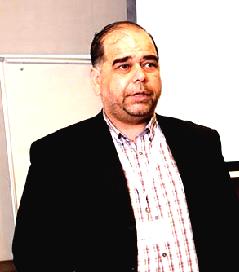
Dr Syed Naqvi
View MoreSyed joined Birmingham City University in August 2014. Previously he worked in the Forensic Technology Solutions (FTS) of PricewaterhouseCoopers Enterprise Advisory. His consultancy assignments included antitrust investigations and litigation support services for corporate disputes. He was mainly involved in the collection and preservation of digital evidences from a range of storage devices and media in forensically sound manner with due legal considerations. He also contributed for the electronic discovery services mainly for the review and analysis of the captured evidence.
Syed has previously worked as a R&D Project Manager at CETIC (Belgian Applied Research Centre in ICT) where he was the Principal Investigator of Digital Forensics. He led the capacity building of Cyber Incident Response initiative. His other major assignments at CETIC include: Project Manager of a European Future Internet Security Research Experiment; Coordination of ICT Security activity of national and European FP6/FP7 projects.
Syed has developed and delivered graduate courses in Computer and Network Security at the Telecommunications School of ParisTech. He is a visiting faculty member of the Business Information System Department at Babeş-Bolyai University since 2008.
Syed has held a Visiting Scientist position at University of Washington at Seattle; and was a Research Fellow at Rutherford Appleton Laboratory of the Science and Technology Facilities Council of UK. He is an external reviewer of a number of international journals and has served several scientific symposia as a technical program committee member.

Dr Janne Hagen
View MoreDr Hagen, from April 2016 is employed as Head Engineer at the Norwegian Water Resources and Energy Directorate (NVE), working on cybersecurity in the Energy Sector in Norway. She has previously worked as a Researcher and Consultant, most of the time employed at the Norwegian Defence Research Establishment (FFI) conducting research on societal security and protection of critical infrastructures. Since 2005, her scientific work focused primarily on cybersecurity, and the vulnerability of the digital society, lately with focus on the Energy Sector. She has been member of several expert groups in Norway, including the Norwegian Governmental Committee of Digital Vulnerabilities in Society that delivered an Official Norwegian Report (NOU) to the Ministry of Justice and Public Security in November 2015.
Cyber Science 2015

Dr Andrew Lenaghan
View MoreDr Andrew Lenaghan is a Computer Security Specialist at Oxford University. He is a member of the Computer Emergency Response Team (CERT) responsible for protecting the University’s network infrastructure, and users, from attack. Prior to this, he was a Senior Security Consultant and Information Security Officer in the finance sector for 8 years, advising firms in the UK, Europe and the US. He has been a regular speaker and chair of the Electronic Money Association’s Fraud and IT Security subcommittee; highlighting emerging fraud and IT security issues. As an academic at Kingston University, he was a Principal Lecturer in Data Communications and a founding member of the Networking and Communication research group. Andrew holds a degree in Computer Science, an MSc Human-Computer Interaction and has a doctorate in computer vision and pattern recognition

Professor Frank Wang
View MoreFrank Z. Wang is a Professor in Future Computing, and Head of School of Computing, University of Kent, UK. The School of Computing was formally opened by Her Majesty the Queen. Professor Wang’s research interests include cloud computing, big data, green computing, brain computing and future computing. He has been invited to deliver keynote speeches and invited talks to report his research worldwide, for example at Princeton University, Carnegie Mellon University, CERN, Hong Kong University of Sci. & Tech., Tsinghua University (Taiwan), Jawaharlal Nehru University, Aristotle University, and University of Johannesburg. In 2004, he was appointed as Chair & Professor, Director of Centre for Grid Computing at CCHPCF (Cambridge-Cranfield High Performance Computing Facility). CCHPCF is a collaborative research facility in the Universities of Cambridge and Cranfield (with an investment size of £40 million). Prof Wang and his team have won an ACM/IEEE Super Computing finalist award. Prof Wang is Chairman (UK & Republic of Ireland Chapter) of the IEEE Computer Society and Fellow of British Computer Society. He has served the Irish Government High End Computing Panel for Science Foundation Ireland (SFI) and the UK Government EPSRC e-Science Panel.

Dr Cyril Onwubiko
View MoreDr Cyril Onwubiko is the Secretary – IEEE UK & Ireland, and Director, Cyber Security and Intelligence at Research Series Limited, where he is responsible for directing strategy, IA governance and cyber security. Prior to Research Series, he had worked in the Financial Services, Telecommunication, Health, Government and Public services Sectors. He is experienced in Cyber Security, Security Information and Event Management, Data Fusion, Intrusion Detection Systems and Computer Network Security; and vastly knowledgeable in Information Assurance, Risk Assessment & Management. He holds a PhD in Computer Network Security from Kingston University, London, UK; MSc in Internet Engineering, from University of East London, London, UK, and BSc, first class honours, in Computer Science & Mathematics. He has authored several books including “Security Framework for Attack Detection in Computer Networks” and “Concepts in Numerical Methods.”, and edited books such as “Situational Awareness in Computer Network Defense: Principles, Methods & Applications“, and Cyber Science 2015 – International Conference on Cyber Situational Awareness, Data Analytics and Assessment. He has over 30 articles published in leading and most prestigious academic journals and conferences.

Dr Thomas Owens
View MoreDr Owens is the co-editor of the book on Situational Awareness in Computer Network Defense: Principle, Methods and Application, IGI Global, USA. He was the project coordinator of the European Commission IST FP5 STREP Project CONFLUENT, of the IST FP6 Integrated Project INSTINCT, and of the FP6 SSA Project PARTAKE. He is currently Project Manager of the IST PSP Project DTV4All, see www.psp-dtv4all.orgAs well as supervising many PhD students, he has extensive experience in a very broad range of administrative and academic roles including undergraduate courses director, postgraduate course director, chairman of MSc examination boards, and elected member of Senate. In 1995/96 he acted as a teaching quality assessor of teaching in Electronic and Electrical Engineering in three Welsh universities for the Higher Education Funding Council for Wales, and in 2007-9 as an external examiner of PhD students. In 2011-13 he was President of the European Advisory Board of the Institute of Studies Brazil Europe, a joint EU Brazil funded initiative. He was Visiting Professor, School of Information and Electronic Engineering, Zhejiang Gongshang University, Hangzhou, China, 8th of September, 2012 to 23rd of September, 2012.
